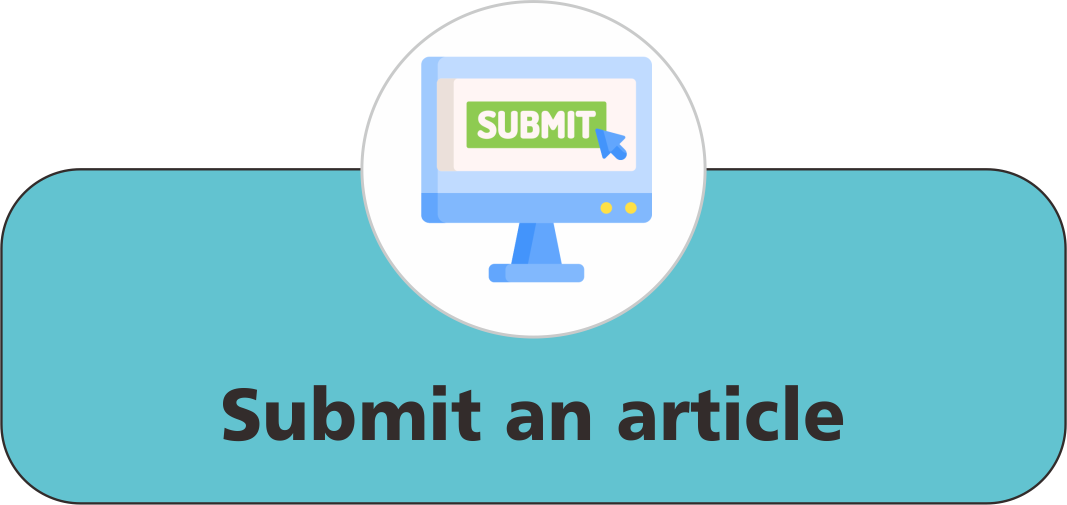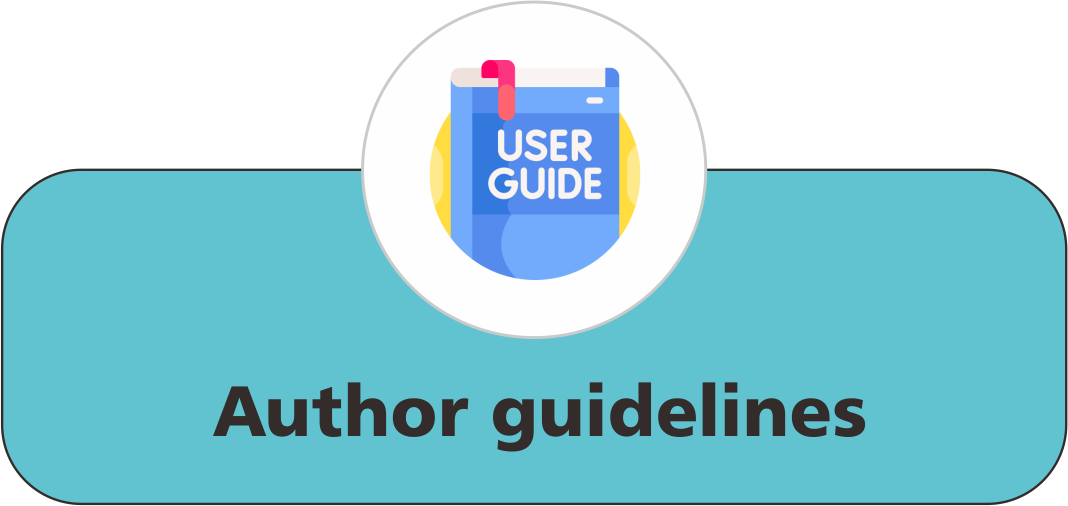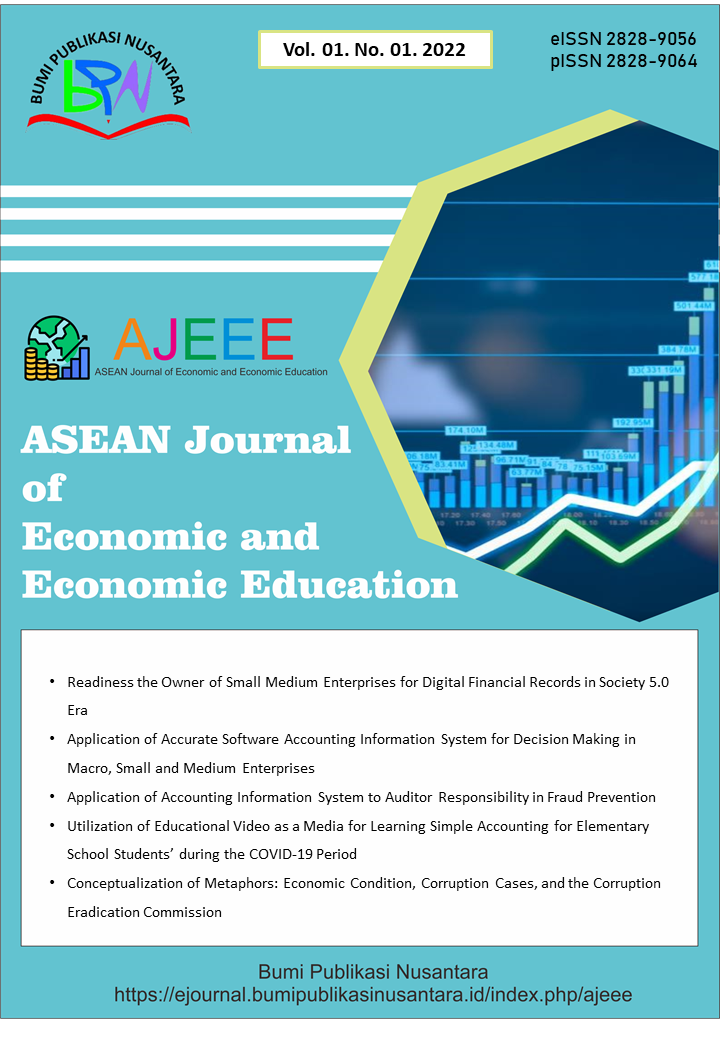Emotional Intelligence, Job Satisfaction, Reward System and Organizational Commitment among Workers
 ), Audu M. Jimoh(2), Naseem Akorede Raji(3), Bamidele Joke Fowowe-Ogunmilugba(4), Olayemi Zainab Oduola(5), Habeeb Omoponle Adewuyi(6),
), Audu M. Jimoh(2), Naseem Akorede Raji(3), Bamidele Joke Fowowe-Ogunmilugba(4), Olayemi Zainab Oduola(5), Habeeb Omoponle Adewuyi(6),
(1) University of Ibadan
(2) University of Ibadan
(3) Edgehill University
(4) University of Ibadan
(5) Federal University of Health Sciences
(6) University of Johannesburg
 Corresponding Author
Corresponding Author
Abstract
This study investigated the influence of emotional intelligence, job satisfaction, and reward systems on the job commitment of workers in Nigeria. In this study, a multi-stage sampling technique was employed. Using random sampling, ten (10) organizations were randomly chosen in Ogun State, Nigeria. Twenty-five employees in each randomly chosen organization were selected through a balloting process. Two hundred fifty people were used overall, the total number of workers. Four reliable and standardized tools were utilized to gather data. The findings of the result showed there was a positive significant relationship between the Job commitment of workers in Ogun state correlated with emotional intelligence, Job satisfaction, and Reward system. Regarding the magnitude of contribution, emotional intelligence made the highest contribution to the prediction. Other variables made substantial contributions in the following order: Job satisfaction and Reward system. The study found that emotional intelligence, satisfaction with work, and the compensation system greatly impact how committed employees are to their jobs.
Keywords
References
Abidoye, A. E., Jimoh, A. M., and Adeyemi, F. T. (2020). Emotional intelligence, self-efficacy, self-concept and self-esteem as correlates of pre-retirement anxiety among public employees In Ibadan Municipality, Nigeria. Journal of Education in Developing Areas, 27(2), 185-193.
Adewuyi, H. O., and Dwarika, V. (2023). Psycho-personological correlates of academic help-seeking among in-school adolescents. Studies in Learning and Teaching, 4(1), 195-204.
Agarwala, T., Arizkuren-Eleta, A., Del Castillo, E., Muniz-Ferrer, M., and Gartzia, L. (2014). Influence of managerial support on work-life conflict and organizational commitment: An international comparison for India, Peru and Spain. The International Journal of Human Resource Management, 25(10), 1460-1483.
Ahmad, M. B., Wasay, E., and Ullah, S. (2019). Impact of employee motivation on customer satisfaction: Study of airline industry in Pakistan. Interdisciplinary Journal of Contemporary Research in Business, 4(6), 531-539.
Allen, N. J., and Meyer, J. P. (1990). The measurement and antecedents of affective, continuance, and normative commitment to the organization. Journal of Occupational Psychology, 63(1), 1–18.
Alsughayir, A. (2021). The effect of emotional intelligence on organizational commitment: Understanding the mediating role of job satisfaction. Management Science Letters, 11(4), 1309–1316.
Atambo, W. N., and Momanyi, D. K. (2016). Effects of internal communication on employee performance: A case study of Kenya power and lighting company, South Nyanza Region, Kenya. Imperial Journal of Interdisciplinary Research (IJIR), 2(5), 328-340.
Aydogdu, S., and Asikgil, B. (2011). An empirical study of the relationship among job satisfaction, organizational commitment and turnover intention. International Review of Management and Marketing, 1(3), 43-53.
Baleghizadeh, S., and Gordani, Y. (2012). Motivation and quality of work life among secondary school EFL teachers. Australian Journal of Teacher Education (Online), 37(7), 30-42.
Black, J. S., and Gregersen, H. B. (1999). The right way to manage expats. Harvard Business Review, 77(2), 52-53.
Butler, A. (2019). Inspiring change, leading in healthcare’: NHS Lanarks support worker conference. British Journal of Healthcare Assistants, 13(10), 510-513.
Demir, S. (2020). The role of self-efficacy in job satisfaction, organizational commitment, motivation and job involvement. Eurasian Journal of Educational Research, 20(85), 205-224.
Dreher, G. F., and Ash, R. A. (1990). A comparative study of mentoring among men and women in managerial, professional, and technical positions. Journal of Applied Psychology, 75(5), 539.
Eslami, J., and Gharakhani, D. (2012). Organizational commitment and job satisfaction. ARPN Journal of Science and Technology, 2(2), 85-91.
Ferreira, A. (2021). The curious case of stablecoins-balancing risks and rewards?. Journal of International Economic Law, 24(4), 755-778.
Garcia-Cabrera, A. M., and Garcia-Soto, M. G. (2012). Organizational commitment in MNC subsidiary top managers: Antecedents and consequences. The International Journal of Human Resource Management, 23(15), 3151–3177.
Goldenberg, I., Matheson, K., and Mantler, J. (2006). The assessment of emotional intelligence: A comparison of performance-based and self-report methodologies. Journal of Personality Assessment, 86(1), 33-45.
Gopinath, R., Ramamoorthy, R., and Kalpana, R. (2020). Impact of emotional intelligence and organizational commitment: Testing the mediatory role of job satisfaction. International Journal of Management (IJM), 11(11), 2883–2893.
Gould-Williams, J., and Davies, F. (2005). Using social exchange theory to predict the effects of HRM practice on employee outcomes: An analysis of public sector workers. Public Management Review, 7(1), 1-24.
Gunawan, H., and Amalia, R. (2015). Wages and employees performance: The quality of work life as moderator. International Journal of Economics and Financial Issues, 5(1), 349-353.
Jain, P. (2016). The influence of transformational leadership and emotional intelligence on organizational commitment. Journal of Commerce and Management Thought, 7(3), 586.
Jimoh, A. M., Ukpabi, I. D., and Salaudeen, K. K. (2021). Job satisfaction and personality characteristics as correlates of lecturers performance in Ibadan, Nigeria. Global Scientific Journals, 9(7), 269-283.
Joo, B. K., and Jo, S. J. (2017). The effects of perceived authentic leadership and core self-evaluations on organizational citizenship behavior: The role of psychological empowerment as a partial mediator. Leadership and Organization Development Journal, 38(3), 463-481.
Jordan, P. J., Ashkanasy, N. M., and Hartel, C. E. J. (2002). Emotional intelligence as a moderator of emotional and behavioral reactions to job insecurity. Academy of Management Review, 27(3), 361 – 372.
Kazdin, A. E. (2008). Evidence-based treatment and practice: new opportunities to bridge clinical research and practice, enhance the knowledge base, and improve patient care. American Psychologist, 63(3), 146.
Kazmi, R., Amjad, S., and Khan, D. (2008). Occupational stress and its effect on job performance. A case study of medical house officers of district Abbottabad. J Ayub Med Coll Abbottabad, 20(3), 135-139.
Khan, I., Shahid, M., Nawab, S., and Wali, S. S. (2013). Influence of intrinsic and extrinsic rewards on employee performance: The banking sector of Pakistan. Academic Research International, 4(1), 282-292.
Kilduff, M., Chiaburu, D. S., and Menges, J. I. (2010). Strategic use of emotional intelligence in organizational settings: Exploring the dark side. Research in Organizational Behavior, 30, 129-152.
Lee, H. J. (2018). How emotional intelligence relates to job satisfaction and burnout in public service jobs. International Review of Administrative Sciences, 84(4), 729–745.
Luthans, F. (2002). Positive organizational behavior: Developing and managing psychological strengths. Academy of Management Perspectives, 16(1), 57-72.
Meyer, J. P. and Parfyonova, N. M. (2010). Normative commitment in the workplace: A theoretical analysis and re-conceptualization. Human Resource Management Review 20(4), 283–294.
Muraina, K. O., and Oladimeji, L. O. (2022c). Internet-based technique and social support in the management of depression among secondary school teachers in Oyo State, Nigeria. International Journal on Education Insight (IJEI), 3(1), 9-18.
Muraina, K. O., and Popoola, B. O. (2022b). Locus of control and self-concept as determinants of internet addiction among public university undergraduates in Oyo State, Nigeria. Journal of Digital Learning and Education (JDLE), 2(1), 51-58.
Muraina, K. O., Owoyale-Abdul Ganiy, I. S., and Kirti, V. (2022a). Assessment of ICT skills among upper basic islamic studies teachers in Kwara State. Journal of Mathematical Sciences and Computational Mathematics (JMSCM), 3(3), 367-376.
Olanrewaju, M. K., and Omoponle, A. H. (2017). Influence of peer pressure, socio-economic status and social networking on academic performance of students in Oyo State. Africa Education Evaluation, 1(1), 1-10.
Omoponle, A. H. (2019). Religiosity, family back ground and occupational prestige as predictors of career preference among secondary school adolescents in Osun State. American Journal of Psychology and Behavioral Sciences, 6(2), 8.
Onyemah, T. N., and Omoponle, A. H. (2022). Child abuse and family background as predictors of poor academic performance among adolescents in special schools of Ibadan-Nigeria. Journal of Lexicography and Terminology (Online ISSN 2664-0899. Print ISSN 2517-9306), 6(1), 106-119.
Pathak, S., and Goltz, S. (2021). An emotional intelligence model of entrepreneurial coping strategies. International Journal of Entrepreneurial Behavior and Research, 27(4), 911-943.
Peter, A. O. (2014). Determinants of employee commitment for organizational performance. International Journal of Management Academy, 2(4), 37–44.
Quaisar, I. K., Shukor, D. A. S., and Soffian, D. S. S. I. (2016). Career success and organizational justice as the potential predictors of perceived university performance?: A Study from Public Sector Universities of Pakistan. European Journal of Business and Management, 8(16), 131–139.
Rangriz, H., and Mehrabi, J. (2010). The relationship between emotional intelligence, organisational commitment and employees' performance in Iran. International Journal of Business and Management, 5(8), 50-56.
Rathi, N., and Rastoghi, R. (2009). Assessing the relationship between emotional intelligence, occupational self-efficiency and organizational commitment. Journal of the Indian Academy of Applied Psychology, 35(1), 93-102.
Raymond, T., and Mjoli, T. Q. (2013). The relationship between job involvement, job satisfaction and organizational commitment among lower-level employees at a motor-car manufacturing company in East London, South Africa. Journal of Business Economic Management, 1(2), 25–35.
Rhoades, L., Eisenberger, R., and Armeli, S. (2001). Affective commitment to the organization: The contribution of perceived organizational support. Journal of Applied Psychology, 86(5), 825-836.
Sandilyan, P. R., Mukherjee, M., Dey, A., and Mitra, M. (2012). Effect of remuneration and rewards on employee motivation-A Study of selected hotels in West Bengal. ZENITH International Journal of Business Economics and Management Research, 2(4), 1–21.
Sewell, B. B., and Gilbert, C. (2015). What makes access services staff happy? A job satisfaction survey. Journal of Access Services, 12(3-4), 47-74.
Shafiq, M., and Rana, R. A. (2016). Relationship of emotional intelligence to organizational commitment of college teachers in Pakistan. Eurasian Journal of Educational Research, 16(62), 1-14.
Terera, S. R., and Ngirande, H. (2014). The impact of rewards on job satisfaction and employee retention. Mediterranean Journal of Social Sciences, 5(1), 481–488.
Valaei, N., and Rezaei, S. (2016). Job satisfaction and organizational commitment: An empirical investigation among ICT-SMEs. Management Research Review, 39(12), 1663–1694.
Vomberg, A., Homburg, C., and Bornemann, T. (2015). Talented people and strong brands: The contribution of human capital and brand equity to firm value. Strategic Management Journal, 36(13), 2122–2131.
Yuan, L., Yu, Y., Li, J., and Ning, L. (2014). Occupational commitment, industrial relations and turnover intention: Empirical evidence from China. Chinese Management Studies, 8(1), 66-84.
Yusuf, J., and Muraina, K. O. (2022). Reality therapy: An approach for handling the psycho-social challenges confronting divorcees in Nigeria. Indonesian Journal of Educational Counseling (IJEC), 6(1), 8-18.
Zopiatis, A., Constanti, P., and Theocharous, A. L. (2014). Job involvement, commitment, satisfaction and turnover: Evidence from hotel employees in Cyprus. Tourism Management, 41, 129–140.
Article Metrics
Abstract View : 3542 times
: 3542 times Download : 1879 times
Download : 1879 times
Refbacks
- There are currently no refbacks.
Copyright (c) 2023 Bumi Publikasi Nusantara

This work is licensed under a Creative Commons Attribution-ShareAlike 4.0 International License.



_publication_ethics1.png)



